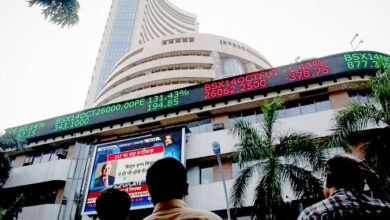Asian Stocks Go Up on Hopes for a Fed Pivot, but Australian Stocks Fall

Most Asian stock markets kept going up on Wednesday, as hopes grew for a less “hawkish” Federal Reserve. However, Australian stocks fell because inflation hit its highest level in 32 years, which pointed to more economic trouble.
Stocks from Hong Kong and China did the best today, as they continued to recover from a sharp drop earlier this week. The Hang Seng index in Hong Kong went up 2% from a 13-year low, and the Shanghai Shenzhen CSI 300 index in China went up 1.4%.
Related: Asia FX Goes Up on Hopes for a Fed Pivot, and the Yuan Goes Up on Intervention
But both indexes were trading a lot lower for the week because people were worried about China’s political situation and the slowing growth of its economy.
Asian markets as a whole went up, even though Wall Street had a bad day. The Nikkei 225 index in Japan went up by 0.8%, and Malaysian stocks were the best performers in Southeast Asia, going up by 0.5%.
Investors are more optimistic about risky markets because they think that damage to the U.S. economy could force the Federal Reserve to change its tough stance.
The markets still all expect a rate hike of 75 basis points in November. But there are more and more bets that the central bank will raise rates by a smaller amount in December.
This week, a lot of bad news about the U.S. economy added to rumours about a possible pivot. The focus is now on the U.S. GDP data for the third quarter, which will be released later this week, for more information about the world’s largest economy.
This year, sharp interest rate hikes by the Federal Reserve hurt Asian stocks a lot. Rising yields and a lack of liquidity make people less interested in risky assets.
This trend is likely to continue in the near future since interest rates are already at their highest level since the 2008 financial crisis, even if the Fed softens its hawkish stance.
The S&P/ASX 200 index rose 0.2% on Wednesday, trailing other stock markets.
Australian CPI inflation hit its highest level in 32 years in the quarter ending in September, according to data. This puts more pressure on the Reserve Bank of Australia to raise interest rates.
Related: Asia’s markets fall as investors become less risk-averse and yields increase.
Shares of Coles Group (ASX:COL), the second-largest supermarket chain in the country, dropped by almost 3% after the company said that rising inflation and bad weather were putting pressure on prices.





